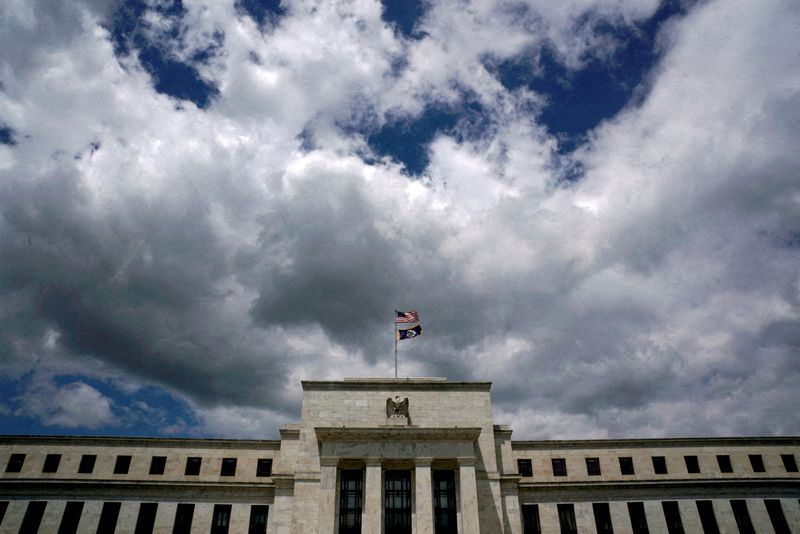By Howard Schneider and Pete Schroeder
WASHINGTON (Reuters) -Persistent inflation and higher-for-longer interest rates were cited as key risks to financial stability in the Federal Reserve's latest survey of U.S. central bank contacts, with geopolitical troubles and the 2024 U.S. presidential election also mentioned as "a potentially significant source of shocks."
"Contacts noted several areas of uncertainty including trade policy and other foreign policy issues related to escalating geopolitical tensions," the Fed said on Friday in its semi-annual survey of 25 market participants, academics and other contacts. "They also noted policy uncertainty associated with the U.S. elections in November," when the Democratic incumbent Joe Biden faces Republican former President Donald Trump.
The survey results were included as part of the Fed's latest Financial Stability Report, which looks at issues like leverage and risk-taking throughout the economy to try to identify potential trouble spots.
The report was released more than two years after the Fed launched the most aggressive interest rate hiking cycle since the 1980s in a bid to slow a surge in inflation, a move that was broadly predicted to tip the economy into recession and aggravate stresses in the financial sector.
The latest report, much like those preceding it through the Fed's battle with inflation, shows little evidence of widespread risks to the financial system despite borrowing costs remaining at their highest levels in a quarter of a century.
But that overall impression of resilience may suggest potential problems for Fed officials who feel the economy needs to slow for inflation to sustainably return to the central bank's 2% target. The strength of household and business balance sheets, the stability of the banks, and the lack of imminent bubbles or other threats suggest that a slowdown won't come through the financial or credit channels that have typically been an important part of monetary policy transmission.
Contacts were interviewed through March, when Fed officials began to have doubts about an ongoing drop in inflation and noted that rate cuts might not come as fast as expected.
While that added to uncertainty about monetary policy, which along with inflation was the most cited risk, the level of "policy uncertainty" flowing from the escalation of violence in Israel and throughout the Middle East, the ongoing war in Ukraine, and the state of U.S. politics, was the second-most cited potential threat to the financial system.
Across what has become the Fed's standard framework for assessing financial vulnerabilities, however, the system was characterized as in largely steady shape despite high policy interest rates and the ongoing inflation fight.
There were some areas of concern, including declining values for commercial real estate and rising leverage among some of the bigger hedge funds.
Stock and real estate values were high, and the report cited - as have many analysts of late - a rise in consumer debt delinquencies and other signs of stress among some households.
But there was little sense that was broad-based.
Private debt as a share of national economic output declined, businesses maintained a "robust" capacity to service debt, and overall household debt was "modest," all markers of stability.

"The banking system remained sound and resilient," with strong capital and liquidity levels, the Fed said in the report.
Though credit "appeared to tighten for small firms," the report noted that the number of firms that reported they were short on financing "remained unchanged at a low level."